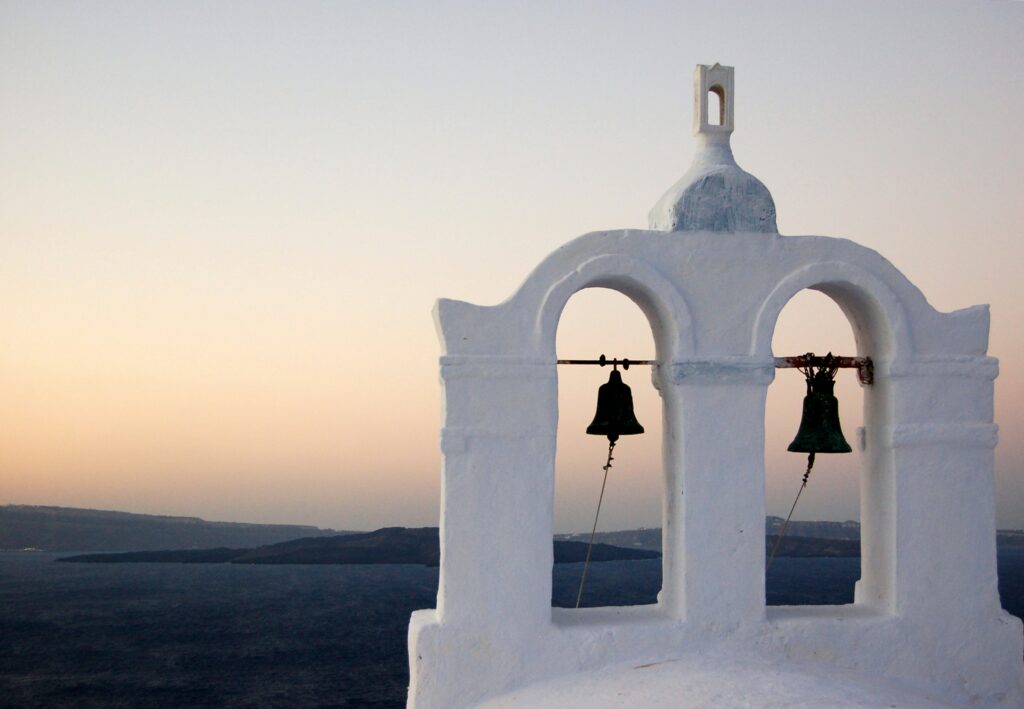I’ve always liked the Christmas hymn “I heard the bells on Christmas day“. I find its promise of God’s hope overcoming the world’s despair to be comforting and uplifting. Read the first three verses here. Don’t they make your heart glow?
I heard the bells on Christmas Day
Their old, familiar carols play,
and wild and sweet
The words repeat
Of peace on earth, good-will to men!
And thought how, as the day had come,
The belfries of all Christendom
Had rolled along
The unbroken song
Of peace on earth, good-will to men!
Till ringing, singing on its way,
The world revolved from night to day,
A voice, a chime,
A chant sublime
Of peace on earth, good-will to men!
But, as we know, the song then takes a somber turn. The author sees much in his world that is not at all peace on earth, or good will to men.
Christmas: Present
When I first started this article, I thought this hymn seemed especially appropriate this Christmas of 2023. I watch with concern as evil shows itself both overseas and here at home. The terrorist massacre in Israel on October 7th was so horrific. The far-too-common response of the world to downplay that terror and equate the terrorists with their victims as both being simply “adversaries” in a “cycle of violence” is even more frightening. It shows that many people refuse to see and name evil even when it is demonstrated so emphatically.
I also watch with concern as millennia-old standards of sexuality and decency are corrupted, and that corruption celebrated. It’s not a surprise: The Bible describes the same thing in Isaiah 5:20 and Romans 1:32. And those involved are simply sinners, just as I am; all of us are naturally separated from God and in equal need of His grace. But it’s still not peace on earth, or good will to men.
Christmas: Past
But Christmas of 2023 is not unique in its need for hope. This poem was written by Henry Wadsworth Longfellow on Christmas of 1864, in the midst of the Civil War. Longfellow had experienced personal tragedy: His first wife had died in 1835 from a miscarriage, then his second wife was killed in a fire in 1861. He was left a widower — badly burned himself — with five children aged 8 through 18. Then the 18-year-old, Charley, joined the Union army in 1863, only to be severely wounded and barely able to return home, then to face a long recovery and the possibility of permanent paralysis. The experiences of both personal and national tragedy form the background of the next two verses of his poem, which are not usually included in the hymn:
Then from each black, accursed mouth
The cannon thundered in the South,
And with the sound
The carols drowned
Of peace on earth, good-will to men!
It was as if an earthquake rent
The hearth-stones of a continent,
And made forlorn
The households born
Of peace on earth, good-will to men!
There have been other Christmases in other wars, also. Remember George Washington at Valley Forge? Or the very-temporary “Christmas Truce” of 1914, in the middle of World War I? There were also Christmases in World War II POW camps, and even in concentration camps. There have been plenty of occasions to join Longfellow in his lament:
And in despair I bowed my head;
“There is no peace on earth,” I said;
“For hate is strong,
And mocks the song
Of peace on earth, good-will to men!”
Christmas: First
In fact, there have been sounds of pain trying to drown out the song of the angels ever since it was first sung. Jesus was born into a people conquered by Rome. While the Roman Empire brought much good — in the form of infrastructure such as roads and cities, and communications such as common language and laws — it also brought much bad. Its dominance was merciless against any hint of revolt. Cruel, sometimes insane, emperors held absolute power. Immorality was rampant. Entertainment included gory spectacles in arenas. Unwanted babies were abandoned to die of exposure. It was not a pretty time…but it was the time that God chose to initiate His kingdom.
It was at this time that God chose to shine His light into the world, sending a child, His Son, to provide for peace (Isaiah 9:2, 6-7). The peace between one man and another hasn’t arrived yet (but it will!) The peace between man and God, however, is already available for the asking (John 3:16).
Christmas: Future
To those who follow that Child, that Savior, there is the promise of a magnificent future. Instantly, at a trumpet sound, “in the twinkling of an eye” (1 Corinthians 15:52), they will be welcomed to a great “Christmas party”. Revelation calls it the “marriage supper of the Lamb” (Revelation 19:7-9) in a place where there are no more tears…or death…or mourning…or crying…or pain (Revelation 21:3-4).
Christmas: Still
Back to our song, the final verse stops looking toward the world’s problems, and looks to God instead. It reminds us that Jesus said “In the world you have tribulation, but take courage; I have overcome the world.” (John 16:33) In spite of everything, Longfellow still trusted that God remains in charge, and that He has won. We can trust in that also. Merry Christmas!
Then pealed the bells more loud and deep:
“God is not dead, nor doth He sleep;
The Wrong shall fail,The Right prevail,
With peace on earth, good-will to men.”


